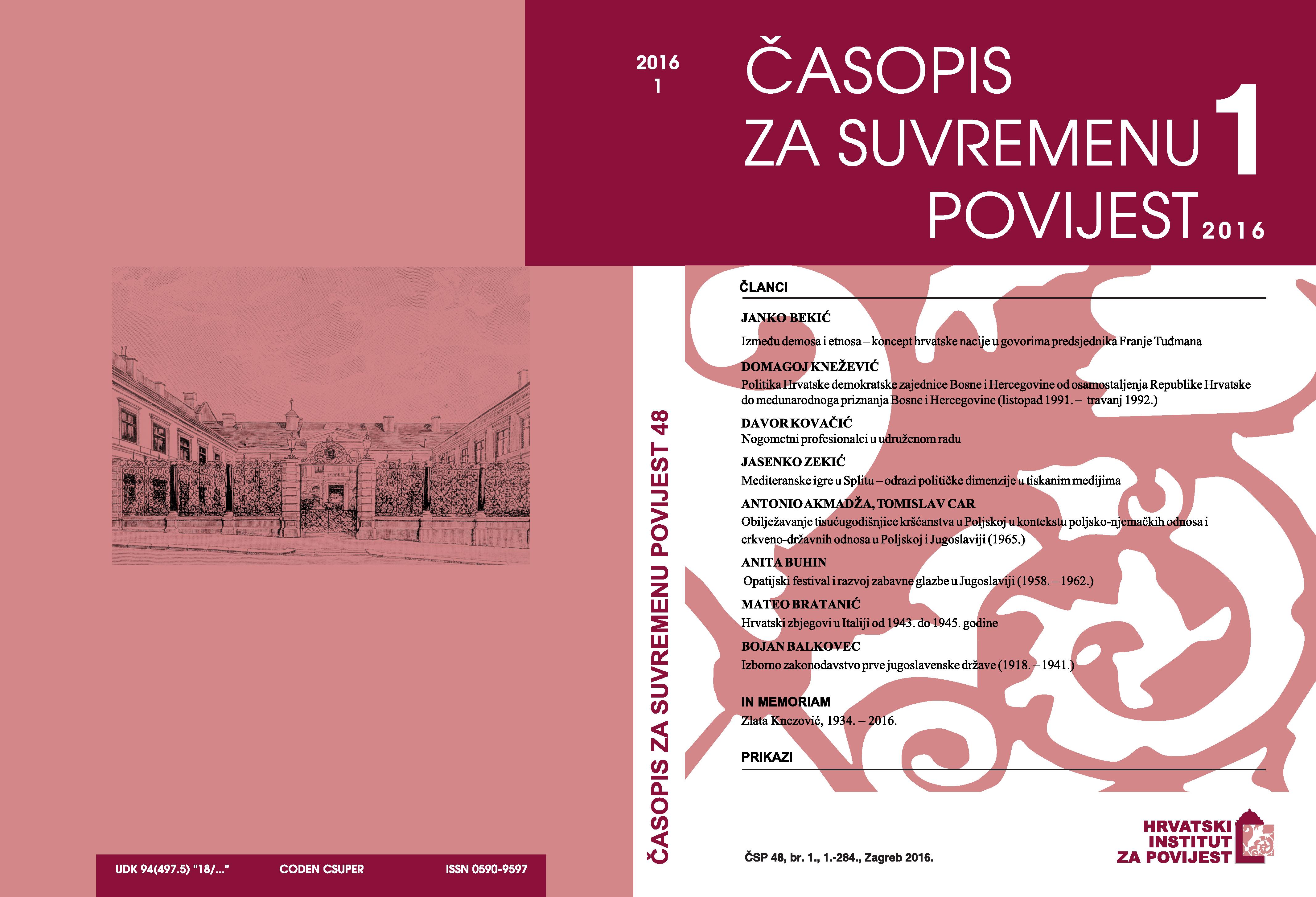Mediteranske igre u Splitu – odrazi političke dimenzije u tiskanim medijima
“Mediterranean Games in Split – Reflections of Political Dimension in Printed Media”
Author(s): Jasenko ZekićSubject(s): Cultural history, Political history, Social history, Post-War period (1950 - 1989), Sports Studies
Published by: Hrvatski institut za povijest
Keywords: the Mediterranean Games; Split; printed media; policy; infrastructure; Josip Broz Tito; Stane Dolanc;
Summary/Abstract: The Eighth Mediterranean Games, held in Split in the second half of September 1979, the largest sporting event in Yugoslavia so far, were not only sports, but also a political event. At the newly built stadium in Poljud, the Games were opened by Josip Broz Tito as their chief sponsor. Despite the precarious internal political situation, but considering the overall political situation in the Mediterranean, Yugoslavia was the only possible organiser of the Games. By overriding the sporting dimension, the echoes of political dimension had left a considerable trace, especially in the printed media. The rhetoric of the newspaper articles and interviews with the top organisers of the Games, who were also top officials of the then policy, promoted the very internal and foreign policy of Yugoslavia through sport, and the feuilletons were giving a retrospective overview of the previous seven Games and the superimposition of the negative political aspects on sport, or chronic problems among the Mediterranean states. Although the dominant political dimension and its echoes in the press had been following the ten years preparation period and the successful realisation of the Games, the most long-term goal of the Games was the infrastructural renaissance of Split and co-organising towns. Construction of the stadium on Poljud, as well as other sports facilities, renovated building of the Croatian National Theatre, restoration and renovation of the old town of Split, the passenger terminal at the airport, the marine passenger terminal in the town-port, renovation of road and railway infrastructure, building and reconstruction of tourist facilities had outlived not only the dominant political dimension of that time, but also the state itself where the Games were held.
Journal: Časopis za suvremenu povijest
- Issue Year: 48/2016
- Issue No: 1
- Page Range: 97-117
- Page Count: 21
- Language: Croatian

